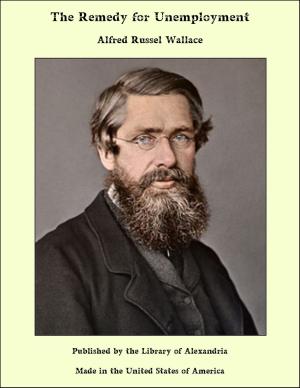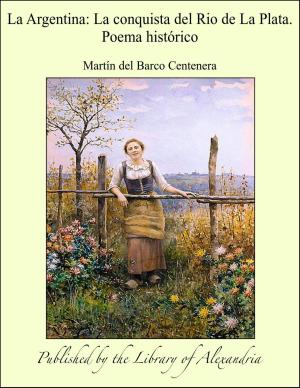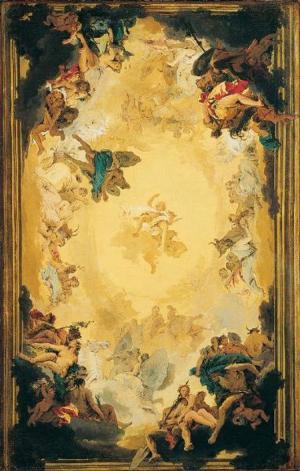| Author: | Fergus Hume | ISBN: | 9781465617927 |
| Publisher: | Library of Alexandria | Publication: | March 8, 2015 |
| Imprint: | Language: | English |
| Author: | Fergus Hume |
| ISBN: | 9781465617927 |
| Publisher: | Library of Alexandria |
| Publication: | March 8, 2015 |
| Imprint: | |
| Language: | English |
Barnstead was a moderately large village, which had not increased in population or size since the Middle Ages. In fact, it was less important now than it had been in medieval times, for then several battles, detrimental to a kingly dynasty, had been fought in its vicinity. Now it was a quiet, somnolent spot, which had nothing to do with the affairs of the nation; at all events, these were not transacted within its neighbourhood. Ten miles distant, the roaring manufacturing town of Marborough responded to the business spirit of the century, and was connected by rail with the metropolis, but the iron way came no further; and to reach Barnstead it was necessary to drive or ride. For the convenience of chance visitors a coach ran daily between the Herne Arms in Barnstead and the William Pitt Hotel in Marborough. This was the sole link which connected the village with the outside world. The surrounding country was flat and alluvial and agricultural, with prosperous farms set here and there in the extent of its plain. In the centre of these rich cornlands, which formed the wealth of the region, Barnstead was placed beside a sluggish little stream, too small to be called a river. The quaint houses of the village clustered round a beautiful minster of ornate architecture. This was St. Dunstan's Church, and dated from Saxon times, although its design was Norman, and the greater part of it had been built in the thirteenth century. The Rev. Francis Chaskin, ex-cavalry officer, was its vicar, and the living had been presented to him by Darcy Herne, squire and lord of Barnstead Manor, and the firm friend of this soldier turned priest. Herne Grange, the great house of the district, was situated a quarter of a mile from Barnstead, and nestled amid the trees of its park, some little way back from the high road leading to Marborough. Its present owner, a man of thirty, was devoured by religious fanaticism, and was subject to trances like those recorded of the Catholic saints. He was tall, meagre, pale, and--so far as could be seen--quite detached from worldly pleasures; so why such a saint should have engaged himself to frivolous Millicent Lester was a problem which no one could solve. Yet eight months before the beginning of this tale the ascetic and the coquette--to describe them by their most pronounced characteristics--became engaged, and the wedding was to take place shortly. Whatever Herne's reason might have been for the match, his bride-elect made no secret that her consent was based on solely monetary grounds. Her father was poor, her home--owing to the domineering of the inconvenient Iris Link--was disagreeable; and to escape from these ills she was content to become Mrs. Herne, of the Grange. Secretly she would have preferred Lucas Lovel as a husband, as he was good-looking and pleasant, but in the face of his avowed poverty she chose to marry Darcy Herne. Nevertheless, she recompensed herself for this dutiful compliance with necessity by flirting with Lovel whenever she could do so without such behavior coming to the ears of her future husband. With Darcy's strict views, he was quite capable of breaking off the match did he learn of her conduct; and Milly was too anxious to complete this rich marriage to run such a risk. So she coquetted discreetly with Lovel, and assumed a demure demeanor when in the saintly presence of Herne.
Barnstead was a moderately large village, which had not increased in population or size since the Middle Ages. In fact, it was less important now than it had been in medieval times, for then several battles, detrimental to a kingly dynasty, had been fought in its vicinity. Now it was a quiet, somnolent spot, which had nothing to do with the affairs of the nation; at all events, these were not transacted within its neighbourhood. Ten miles distant, the roaring manufacturing town of Marborough responded to the business spirit of the century, and was connected by rail with the metropolis, but the iron way came no further; and to reach Barnstead it was necessary to drive or ride. For the convenience of chance visitors a coach ran daily between the Herne Arms in Barnstead and the William Pitt Hotel in Marborough. This was the sole link which connected the village with the outside world. The surrounding country was flat and alluvial and agricultural, with prosperous farms set here and there in the extent of its plain. In the centre of these rich cornlands, which formed the wealth of the region, Barnstead was placed beside a sluggish little stream, too small to be called a river. The quaint houses of the village clustered round a beautiful minster of ornate architecture. This was St. Dunstan's Church, and dated from Saxon times, although its design was Norman, and the greater part of it had been built in the thirteenth century. The Rev. Francis Chaskin, ex-cavalry officer, was its vicar, and the living had been presented to him by Darcy Herne, squire and lord of Barnstead Manor, and the firm friend of this soldier turned priest. Herne Grange, the great house of the district, was situated a quarter of a mile from Barnstead, and nestled amid the trees of its park, some little way back from the high road leading to Marborough. Its present owner, a man of thirty, was devoured by religious fanaticism, and was subject to trances like those recorded of the Catholic saints. He was tall, meagre, pale, and--so far as could be seen--quite detached from worldly pleasures; so why such a saint should have engaged himself to frivolous Millicent Lester was a problem which no one could solve. Yet eight months before the beginning of this tale the ascetic and the coquette--to describe them by their most pronounced characteristics--became engaged, and the wedding was to take place shortly. Whatever Herne's reason might have been for the match, his bride-elect made no secret that her consent was based on solely monetary grounds. Her father was poor, her home--owing to the domineering of the inconvenient Iris Link--was disagreeable; and to escape from these ills she was content to become Mrs. Herne, of the Grange. Secretly she would have preferred Lucas Lovel as a husband, as he was good-looking and pleasant, but in the face of his avowed poverty she chose to marry Darcy Herne. Nevertheless, she recompensed herself for this dutiful compliance with necessity by flirting with Lovel whenever she could do so without such behavior coming to the ears of her future husband. With Darcy's strict views, he was quite capable of breaking off the match did he learn of her conduct; and Milly was too anxious to complete this rich marriage to run such a risk. So she coquetted discreetly with Lovel, and assumed a demure demeanor when in the saintly presence of Herne.















